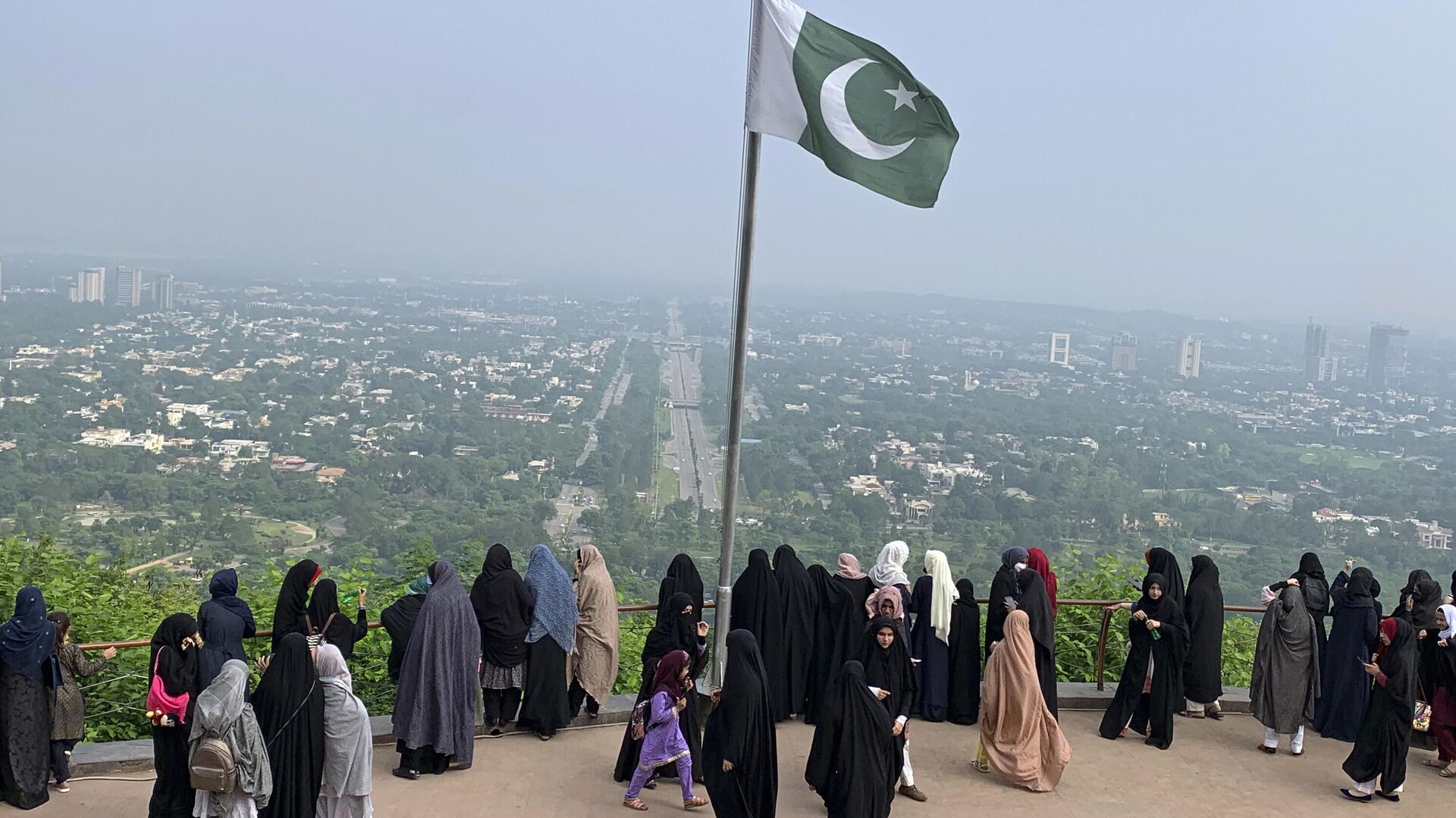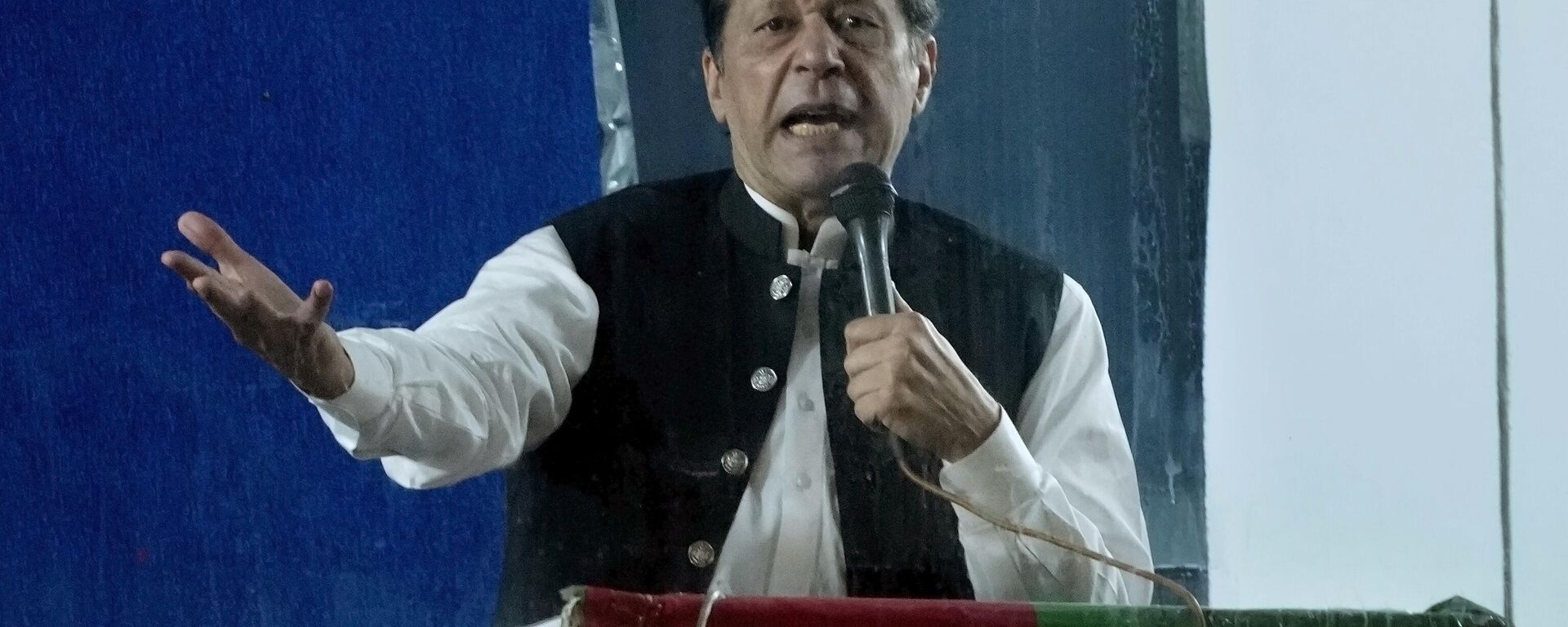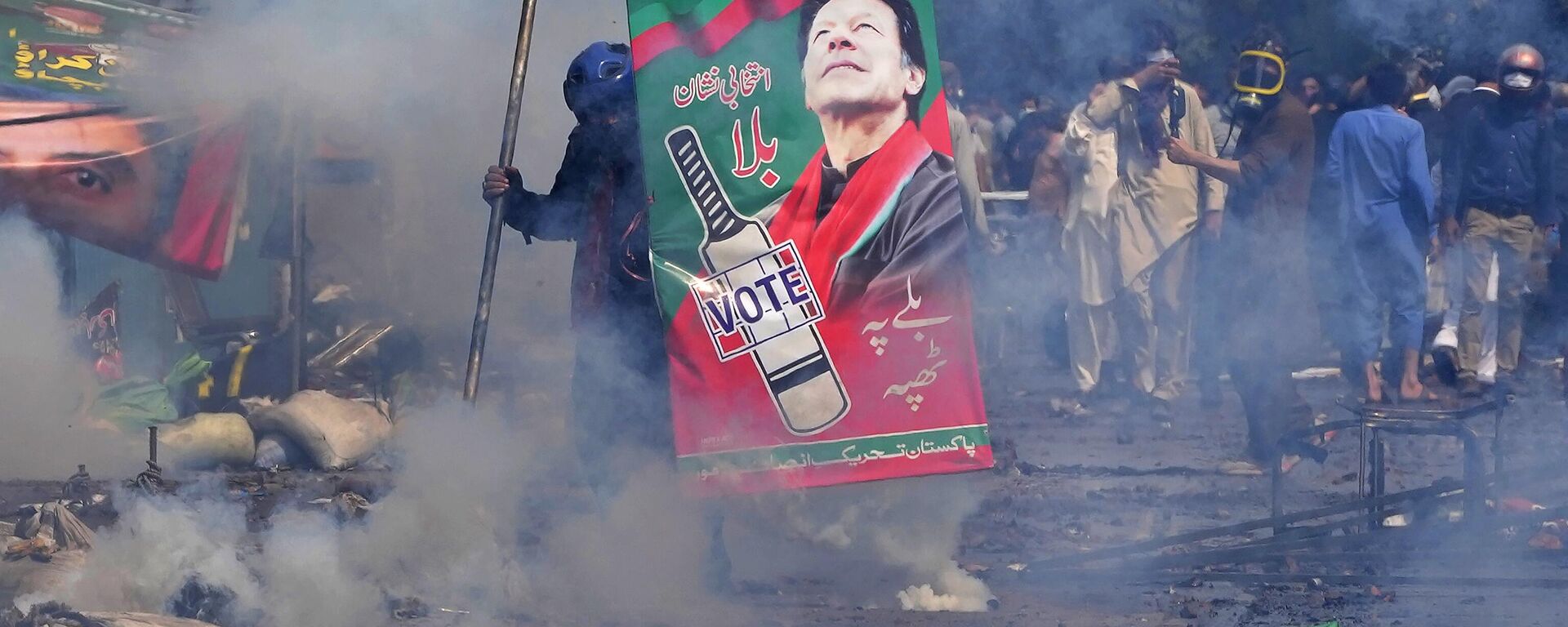https://sputniknews.in/20230410/pillar-of-democracy-pakistan-commemorates-the-golden-jubilee-of-1973-constitution-1492461.html
Pillar of Democracy: Pakistan Commemorates the Golden Jubilee of 1973 Constitution
Pillar of Democracy: Pakistan Commemorates the Golden Jubilee of 1973 Constitution
Sputnik India
On April 10, 1973 the National Assembly presented Pakistan with a permanent Constitution, the first document to be framed by democratically elected leaders to... 10.04.2023, Sputnik India
2023-04-10T17:23+0530
2023-04-10T17:23+0530
2023-04-10T17:23+0530
pakistan
south asia
shehbaz sharif
national assembly of pakistan
national identity
constitution
india-pakistan war of 1971
https://cdn1.img.sputniknews.in/img/07e7/04/0a/1493638_0:186:2981:1862_1920x0_80_0_0_a9deca948d0c866cdb505fe293801405.jpg
Framing a new constitution of Pakistan was a formidable task spearheaded by then president Zulfikar Ali Bhutto and the members of the National Assembly. It was a time when Pakistan's political lines were divided and it was facing economic and social problems, still not having fully recovered from the loss of East Pakistan (today's Bangladesh) in 1971.It was in these tough circumstances that the parties in parliament began the arduous yet vital effort of framing a new basic law.A Haphazard JourneyPrior to the 1973 Constitution the country followed different constitutions. From its 1947 independence from British India until 1956, Pakistan was governed under the Government of India Act of 1935, and it was nine years after independence that the country finally received its first constitution.However, the 1956 Constitution was short-lived as then president Maj-Gen Iskander Mirza would cancel the document and declare martial law in the country by handing over power to army chief General Ayub Khan.Ayub Khan would implement a second constitution in the country in 1962, which created a presidential system, and gave the "Basic Democracies". It consisted of a network of local self-governing bodies to provide a link between the government and the people. The primary governing units were set up to carry out local affairs; their members were elected by constituencies of 800–1,000 adults.However, this document, too, was annulled when General Yahya Khan came to power in 1969.Hence, these constitutional experiments and martial law interventions left Pakistan in need of a new constitutional framework.The process started when Zulfikar Ali Bhutto, leader of Pakistan People's Party (PPP) and father of late Benazir Bhutto (former Prime Minister) became the President of Pakistan.The journey towards adopting the 1973 Constitution was far from simple because the divide between the ruling PPP and the opposition alliance was quite wide, and leaders from both sides regularly censured each other, but dialogue and good leadership saved the day.After months of negotiations one day Bhutto's law minister Abdul Hafeez Pirzada, known as the driving spirit behind the 1973 document, finally told the National Assembly that the opposition had ended its boycott and a consensus on the constitution had been reached.The Constitution of 1973 gave Pakistan the basic structure it has today: a directly elected parliamentary system with a bicameral legislature (a government that has a two-house legislative system) rooted in federalism.The document was formed by consensus and had the signatures of all the members of the National Assembly. Its universality can be seen in how all the members despite different political and religious affiliations had signed the document, agreeing to the laid down laws.Over the last 50 years the Constitution has faced suspension and military coups, but it survived.The most serious assaults on the document came during Zia ul Haq and later Pervez Musharraf's eras of military rule, but due to the sincere efforts of politicians like Senator Raza Rabbani, with the implementation of the 18th Amendment in 2010, revived the spirit of the original document by ensuring provincial autonomy and fixing the damage done by the military leaders.A Landmark Event in History of PakistanToday on April 10, the constitution has turned 50 years old! The Parliament of Pakistan announced that for one whole month the country will celebrate with a series of events to commemorate the founding principles of the constitution.The celebrations today were inaugurated by laying the foundation stone of the Constitution monument at a site opposite to Parliament Lodges, in D-Chowk area of Islamabad. There was also the wreath-laying ceremony at the memorial of the unsung heroes of democracy in the Parliament House.The event will also include an exhibition displaying rare pictures of the Constitution’s framers, inspection of a commemorative stamp, followed by a convention in the Parliament's assembly hall in the evening to be attended by parliamentarians and people from all walks of life.The convention will be chaired by National Assembly Speaker, Raja Pervaiz Ashraf and Prime Minister Shehbaz Sharif. The participants will pay tribute to the framers of the Constitution and muse on how it has served as a pillar of democracy, justice, and equality in the country.The month-long activities to celebrate the constitution will include speech contests in educational institutions, quiz competitions, exhibitions, special programmes by electronic media, newspaper supplements, issuance of commemorative coin and stamp as well as an international constitution convention on May 10, 2023.On Monday, Prime Minister Shehbaz Sharif paid tribute to the framers of Pakistan’s 1973 Constitution on his Twitter.He went on to say that the constitution continues to be central to shaping Pakistan’s national character, identity, and future trajectory."The time has come to place Parliament at the core of national life both in letter and spirit," he added.
https://sputniknews.in/20230327/imran-khan-lays-out-road-to-pakistans-economic-recovery-1321236.html
https://sputniknews.in/20230403/pakistan-civil-society-group-mediates-to-end-stalemate-between-govt-and-opposition-1404349.html
pakistan
south asia
Sputnik India
feedback.hindi@sputniknews.com
+74956456601
MIA „Rossiya Segodnya“
2023
Aneela Rashid
https://cdn1.img.sputniknews.in/img/07e6/0c/0d/74548_0:0:485:484_100x100_80_0_0_821526e967ae85d041e2d30ee34fa1de.jpg
Aneela Rashid
https://cdn1.img.sputniknews.in/img/07e6/0c/0d/74548_0:0:485:484_100x100_80_0_0_821526e967ae85d041e2d30ee34fa1de.jpg
News
en_IN
Sputnik India
feedback.hindi@sputniknews.com
+74956456601
MIA „Rossiya Segodnya“
Sputnik India
feedback.hindi@sputniknews.com
+74956456601
MIA „Rossiya Segodnya“
Aneela Rashid
https://cdn1.img.sputniknews.in/img/07e6/0c/0d/74548_0:0:485:484_100x100_80_0_0_821526e967ae85d041e2d30ee34fa1de.jpg
pakistan, south asia, shehbaz sharif, national assembly of pakistan, national identity, constitution, india-pakistan war of 1971
pakistan, south asia, shehbaz sharif, national assembly of pakistan, national identity, constitution, india-pakistan war of 1971
Pillar of Democracy: Pakistan Commemorates the Golden Jubilee of 1973 Constitution
On April 10, 1973 the National Assembly presented Pakistan with a permanent Constitution, the first document to be framed by democratically elected leaders to lay the foundation of a progressive society.
Framing a new constitution of Pakistan was a formidable task spearheaded by then president Zulfikar Ali Bhutto and the members of the National Assembly. It was a time when Pakistan's political lines were divided and it was facing economic and social problems, still not having fully recovered from the loss of East Pakistan (today's Bangladesh) in 1971.
It was in these tough circumstances that the parties in parliament began the arduous yet vital effort of framing a new basic law.
Prior to the 1973 Constitution the country followed different constitutions. From its 1947 independence from British India until 1956, Pakistan was governed under the Government of India Act of 1935, and it was nine years after independence that the country finally received its first constitution.
However, the 1956 Constitution was short-lived as then president Maj-Gen Iskander Mirza would cancel the document and declare martial law in the country by handing over power to army chief General Ayub Khan.
Ayub Khan would implement a second constitution in the country in 1962, which created a presidential system, and gave the "Basic Democracies". It consisted of a network of local self-governing bodies to provide a link between the government and the people. The primary governing units were set up to carry out local affairs; their members were elected by constituencies of 800–1,000 adults.
However, this document, too, was annulled when General Yahya Khan came to power in 1969.
Hence, these constitutional experiments and martial law interventions left Pakistan in need of a new constitutional framework.
The process started when Zulfikar Ali Bhutto, leader of Pakistan People's Party (PPP) and father of late Benazir Bhutto (former Prime Minister) became the President of Pakistan.
The journey towards adopting the 1973 Constitution was far from simple because the divide between the ruling PPP and the opposition alliance was quite wide, and leaders from both sides regularly censured each other, but dialogue and good leadership saved the day.
After months of negotiations one day Bhutto's law minister Abdul Hafeez Pirzada, known as the driving spirit behind the 1973 document, finally told the National Assembly that the opposition had ended its boycott and a consensus on the constitution had been reached.
The Constitution of 1973 gave Pakistan the basic structure it has today: a directly elected parliamentary system with a bicameral legislature (a government that has a two-house legislative system) rooted in federalism.
The document was formed by consensus and had the signatures of all the members of the National Assembly. Its universality can be seen in how all the members despite different political and religious affiliations had signed the document, agreeing to the laid down laws.
Over the last 50 years the Constitution has faced suspension and military coups, but it survived.
The most serious assaults on the document came during Zia ul Haq and later Pervez Musharraf's eras of military rule, but due to the sincere efforts of politicians like Senator Raza Rabbani, with the implementation of the 18th Amendment in 2010, revived the spirit of the original document by ensuring provincial autonomy and fixing the damage done by the military leaders.
A Landmark Event in History of Pakistan
Today on April 10, the constitution has turned 50 years old! The Parliament of Pakistan announced that for one whole month the country will celebrate with a series of events to commemorate the founding principles of the constitution.
The celebrations today were inaugurated by laying the foundation stone of the Constitution monument at a site opposite to Parliament Lodges, in D-Chowk area of Islamabad. There was also the wreath-laying ceremony at the memorial of the unsung heroes of democracy in the Parliament House.
The event will also include an exhibition displaying rare pictures of the Constitution’s framers, inspection of a commemorative stamp, followed by a convention in the Parliament's assembly hall in the evening to be attended by parliamentarians and people from all walks of life.
The convention will be chaired by National Assembly Speaker, Raja Pervaiz Ashraf and Prime Minister Shehbaz Sharif. The participants will pay tribute to the framers of the Constitution and muse on how it has served as a pillar of democracy, justice, and equality in the country.
The month-long activities to celebrate the constitution will include speech contests in educational institutions, quiz competitions, exhibitions, special programmes by electronic media, newspaper supplements, issuance of commemorative coin and stamp as well as an international constitution convention on May 10, 2023.
On Monday, Prime Minister Shehbaz Sharif paid tribute to the framers of Pakistan’s 1973 Constitution on his Twitter.
"The nation today commemorates the Golden Jubilee of the 1973 Constitution, a sacred document that has weathered many storms over the past 50 years and held the federation together," the premiere wrote.
He went on to say that the constitution continues to be central to shaping Pakistan’s national character, identity, and future trajectory.
"The time has come to place Parliament at the core of national life both in letter and spirit," he added.




